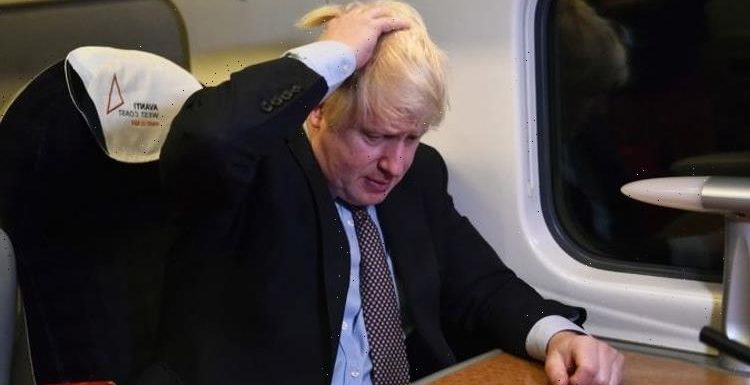
Lord Frost gives update on UK’s participation in Horizon Europe
We use your sign-up to provide content in ways you’ve consented to and to improve our understanding of you. This may include adverts from us and 3rd parties based on our understanding. You can unsubscribe at any time. More info
Britain is excluded from Horizon Europe, the EU’s key research and innovation project as a post-Brexit row rattles on over the Northern Ireland Protocol. And now with Article 16 on the cards as Lord Frost, after headed to Brussels on Friday as Brexit negotiations continue, there are fears Britain may never be able to rejoin the £80billion project.
James Wilsdon, Professor of Research Policy at the University of Sheffield, told Express.co.uk that while Science Minister George Freeman said he has a “bold Plan B”, that might not come to the rescue right away.
He said: “While they say they’ve got Plan B in the back pocket, you can’t make Plan B happen overnight.
“There’s going to have to be some lead time.
“If you were to decide to go to Plan B and you still wanted to be able to spend the money sensibly and responsibly with appropriate checks and balances to make sure you are not just dishing it out willy nilly, that in itself is going to take a number of months to really get up and running.”


The Government was planning to contribute £2.1billion annually to the programme so British scientists and researchers could have access to an array of European science projects and access to funds.
But Lord Frost and Business Secretary Kwasi Kwarteng are now said to be rolling out plans to set up a £6.9billion “Discovery Fund” to rival Horizon Europe.
But Mr Wilsdon said that Britain’s exclusion from Horizon Europe could ruin Prime Minister Boris Johnson’s Brexit pledge to make Britain a “science superpower”.
He told Express.co.uk: “You can’t really have a Plan B for recreating big collaborative network projects.
“It is certainly a significant setback to the UK’s ambition to remain at the forefront of global science.

“We know, and there is ample evidence, that collaborative research is in general higher quality in terms of the influence it has. And in a lot of areas, you can’t really tackle key problems without collaborations with key groups.”
He sent Lord Frost a grave warning as he claimed that Britain’s permanent exclusion from Horizon Europe could be detrimental to British science.
Mr Wilsdon told Express.co.uk: “Even in a post-Brexit context there’s plenty of countries outside of the EU who are members of Horizon, and the Government always said we would stay in the framework programmes even if we did Brexit.
“So in a sense, to not be in them is an unnecessary act of self-harm to British science.”
And while Mr Wilsdon stressed that Britain could struggle outside of Horizon Europe, he did say that there is still some opportunity to collaborate with other nations.
DON’T MISS
Palaeontologists stunned by major twist in find of four-legged snake [REVEAL]
Sea level warning as England sinks into ground: ‘Significant’ [REPORT]
Russia poll: Should UK divert gas to EU if Putin cuts supplies? [POLL]


He said: “We could develop more bilateral and potentially even multilateral lateral funding schemes but with smaller groups of countries.
“We already did some of that already with joint funding schemes with the French and the Germans, so you could scale that up.”
Mr Wilsdon suggested a Plan B of his own, pointing out that Britain could partner up with another country banned from Horizon Europe, Switzerland.
He told Express.co.uk: “We could particularly do something with Switzerland as they are in the same boat that we are.
“One could imagine a very strong Anglo-Swiss scientific collaboration initiative getting underway quicker than most countries.”
Source: Read Full Article